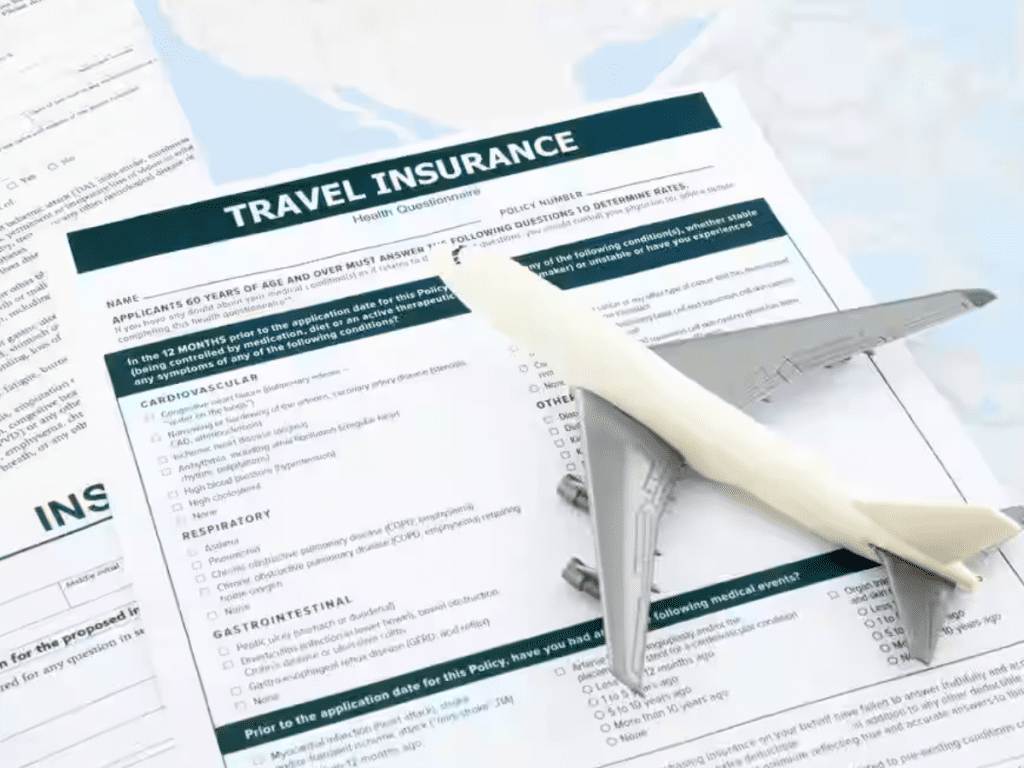Introduction
When you’re about to embark on an exciting trip, there’s no shortage of things to think about: from booking flights and accommodations to planning activities and ensuring your passport is up to date. But amidst all these preparations, one crucial element often gets overlooked—travel insurance. Many travelers consider it an unnecessary expense, but in reality, it can be a life-saving investment. Here’s why travel insurance is essential, how it can protect you from unexpected situations, and how to choose the right policy for your next adventure.
Understanding Travel Insurance
Travel insurance is a type of coverage designed to protect travelers from unforeseen circumstances that can disrupt their trip. These situations can range from flight cancellations and medical emergencies to lost luggage and natural disasters. While no one plans for mishaps, having the right coverage in place can provide peace of mind, knowing that you are protected if things go wrong.
Travel insurance is generally broken down into different types of coverage, each designed to address specific needs. Some policies may offer a combination of benefits, while others focus on one or two key areas. Understanding the various options can help you select the most appropriate coverage for your journey.
Types of Travel Insurance
- Trip Cancellation Insurance One of the most common reasons for purchasing travel insurance is trip cancellation coverage. Life is unpredictable, and you may need to cancel or postpone your trip due to illness, family emergencies, or unexpected work obligations. Trip cancellation insurance reimburses you for non-refundable trip costs if you have to cancel your travel for a covered reason. Without this coverage, you might find yourself out of pocket for flights, hotels, and activities you had already paid for.
- Trip Interruption Insurance Similar to trip cancellation insurance, trip interruption insurance protects you if your travel plans are interrupted after you’ve already started your journey. If something goes wrong while you’re abroad, such as a family emergency or a natural disaster, trip interruption insurance helps cover the additional costs of returning home early or rescheduling your travel plans. This can include extra accommodation, meals, and transportation costs.
- Medical Insurance If you’re traveling abroad, having medical insurance is essential. Your regular health insurance may not cover medical emergencies while you’re in a foreign country, and medical bills can quickly become overwhelming. Travel medical insurance covers the cost of medical treatment, including doctor visits, hospital stays, and emergency evacuation if necessary. In some cases, it may also cover the cost of medication or transportation to a medical facility.
- Emergency Evacuation Insurance In the event of an emergency, such as an accident or a natural disaster, emergency evacuation insurance covers the cost of getting you to the nearest medical facility or back to your home country. This type of coverage is particularly important if you’re traveling to remote locations or places with limited access to healthcare.
- Baggage and Personal Belongings Insurance Losing your luggage or having your personal belongings stolen can be a major inconvenience during your trip. Baggage insurance covers the cost of replacing lost, damaged, or stolen bags and personal items. This can include everything from clothing and electronics to travel documents. If your luggage is delayed, some policies will also provide compensation for essential items you need while waiting for your bags to arrive.
- Travel Delay Insurance Travel delays are common, especially when flying long distances or during peak travel seasons. If your flight is delayed for a significant amount of time, travel delay insurance can help cover additional expenses, such as meals, hotel stays, and transportation. Some policies may also offer compensation for lost time if your delay causes you to miss planned activities or connections.
- Accidental Death and Dismemberment Insurance While no one likes to think about the possibility of an accident, it’s essential to be prepared for the worst. Accidental death and dismemberment insurance provides a payout to your beneficiaries if you’re killed or severely injured during your trip. This coverage is often included in many travel insurance policies, but it’s worth reviewing to ensure you have the appropriate level of coverage.
Why You Need Travel Insurance
Travel insurance is an investment in your peace of mind. While it’s easy to assume that nothing will go wrong on your trip, unexpected events can and do happen. Here are a few reasons why travel insurance is so important:
- Protection Against the Unexpected No matter how much you plan, things can go wrong. Flights can be delayed, weather can be unpredictable, and health emergencies can arise without warning. With travel insurance, you’re protected against these unexpected circumstances, ensuring that you won’t be left with hefty bills or a ruined vacation.
- Coverage for Medical Emergencies Medical emergencies can be one of the most expensive and stressful aspects of traveling. In some countries, healthcare can be prohibitively expensive for tourists, and without insurance, you could be responsible for paying out-of-pocket for treatment. Travel medical insurance ensures that you’re covered for any necessary medical care, so you don’t have to worry about your finances while seeking treatment.
- Peace of Mind Travel can be stressful, especially when you’re heading to a new destination or navigating unfamiliar environments. Having travel insurance in place gives you the confidence to enjoy your trip without constantly worrying about what might go wrong. Whether it’s the knowledge that your medical needs are covered or that you’ll be reimbursed for a canceled flight, insurance allows you to focus on making memories, not managing problems.
- Safeguard Your Investment Travel can be expensive, and for many people, it’s a significant investment. Whether you’ve booked flights, hotels, tours, or activities, those expenses are non-refundable if your plans change unexpectedly. Travel insurance protects this investment by reimbursing you for the cost of canceled or interrupted trips. Without insurance, you could lose all the money you’ve spent on pre-paid travel expenses.
- Help in Emergencies In the event of an emergency, whether it’s a medical situation, a flight cancellation, or a lost passport, travel insurance can help you navigate the situation. Many policies offer 24/7 emergency assistance services that can help you find medical care, rebook flights, or replace lost documents. This kind of support can be invaluable when you’re in a stressful situation in a foreign country.
- Protection for Your Family If you’re traveling with family, it’s important to ensure that everyone is covered in case something goes wrong. Travel insurance provides coverage for your entire family, whether you need to cancel your trip due to illness or require emergency medical care for a child while abroad. Having comprehensive coverage ensures that everyone is taken care of, no matter what happens.
How to Choose the Right Travel Insurance Policy
Selecting the right travel insurance policy can be overwhelming, given the variety of options available. To help you choose the best coverage for your needs, here are some tips to consider:
- Assess Your Needs The first step in selecting a policy is to assess your travel needs. Are you going on a short weekend getaway or a lengthy overseas adventure? Are you traveling for business or leisure? Are you engaging in high-risk activities like skiing or scuba diving? The type of trip you’re taking will determine the type of coverage you need.
- Compare Plans Not all travel insurance policies are created equal. Some policies offer basic coverage, while others provide more comprehensive protection. It’s essential to compare different plans to ensure that you’re getting the right level of coverage for your specific needs. Pay attention to the exclusions, coverage limits, and any additional benefits that may be included in the plan.
- Check for Pre-Existing Conditions Many travel insurance policies exclude coverage for pre-existing medical conditions, so it’s essential to check the terms of the policy before purchasing. If you have a pre-existing condition, look for a policy that offers coverage for this specific situation or consider purchasing a specialized plan.
- Read the Fine Print Before committing to a travel insurance policy, make sure to read the fine print. Understand the terms and conditions, including any exclusions, limits, and deductibles. This will help you avoid surprises if you need to file a claim during your trip.
- Look for 24/7 Assistance Having access to 24/7 emergency assistance can be a lifesaver during your trip. Many travel insurance policies include this service, which can help you with things like finding a doctor, rebooking flights, or replacing lost luggage. Make sure the policy you choose includes this support.
- Consider the Cost Travel insurance can be an additional expense on top of your trip, but it’s worth considering the cost in relation to the value of your trip. While you don’t want to skimp on coverage, you should also make sure the cost of the policy fits within your budget. Generally, travel insurance costs between 4-10% of the total cost of the trip.
Conclusion
Planning a trip should be an exciting experience, but it’s also important to consider the risks that come with travel. Whether you’re heading to a tropical paradise, an adventure-filled hiking expedition, or a business conference overseas, travel insurance can provide vital protection against the unexpected. From flight cancellations and medical emergencies to lost luggage and travel delays, the right coverage ensures that you’re financially protected, allowing you to focus on enjoying your journey.
Before you embark on your next adventure, take the time to research and select a travel insurance policy that meets your needs. It’s a small investment that can provide significant peace of mind, ensuring that you’re covered if things don’t go as planned. Travel with confidence, knowing that you’re prepared for whatever challenges may arise.

